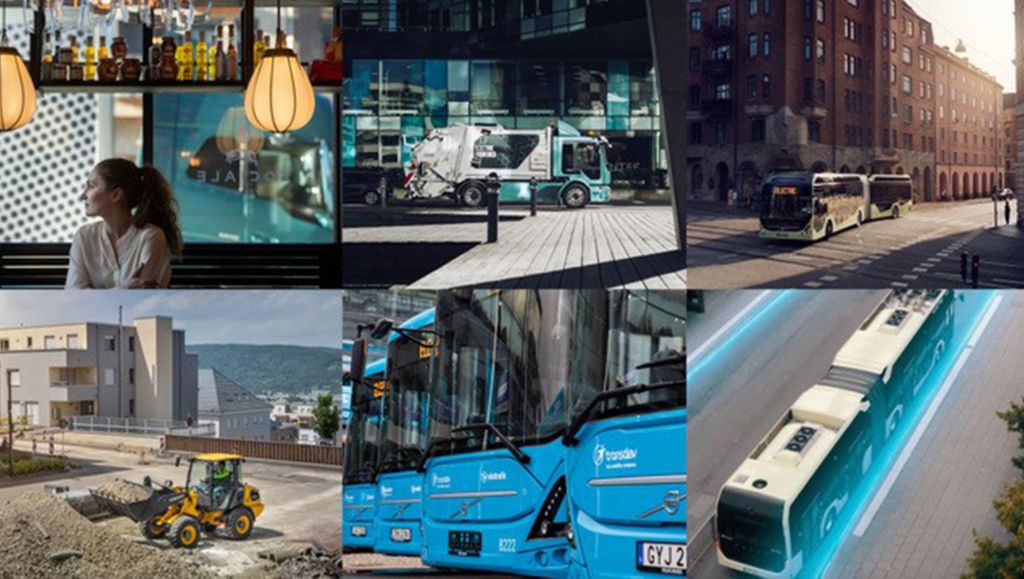Six green city technologies and solutions in Gothenburg – sustainable transport, road safety and waste handling


Fittingly, the Gothenburg has been repeatedly named as one of the most sustainable destinations on the planet, having topped the Global Destination Sustainability Index rankings since 2016 – leading CNN to describe it as the “world’s greenest city.” It’s no surprise, then, that sustainability permeates so many aspects of life in Gothenburg.
Gothenburg has been the testing ground and launch environment for several green city transport technologies – technologies which have quickly been adopted into the day-to-day running of the city. Here’s how six of the most high-profile – and essential – green city transport and construction solutions have developed.
2015 saw the roll-out of Volvo’s electrified buses in Gothenburg. They were put on the road as part of the ElectriCity green city transport project, in association with the local transport authority Västtrafik, the technology university, Chalmers, and ABB – who supplied the city’s charging stations – among others.
By 2021 there were around 200 electrified Volvo buses on the city’s streets, serving 34 routes in and around Gothenburg: with the sleek, quiet vehicles having become a familiar part of the now green city transport urban infrastructure.
If you are visting Gothenburg and come across an area where construction work is underway, you might see our compact, powerful electric construction equipment at work reshaping the city in a cleaner, quieter fashion. Volvo Construction Equipment has also teamed up with municipalities, academia and industry partners in Gothenburg to create a landmark study in the viability of electric construction equipment in different types of job sites worldwide.
Volvo’s electric trucks offering (the Volvo FH, FM and FHX models, which entered series production in September 2022) also include charging equipment, and are complemented by uptime, range optimization, route planning and service tools. The result is quieter, cleaner and more sustainable deliveries: essential in a busy and thriving urban area like Gothenburg, which is fast developing its green city technology. In fact, our electric trucks are so quiet that we have added sounds to them to alert pedestrians and other road users to their presence when idling, reversing or accelerating.
For the city to be able to meet its ambitious emissions goals – which include a 90% reduction in emissions from heavy goods transportation by 2030 – all aspects of future of transport need to be considered, with waste management being a major part of this. Refuse collection started Volvo’s electric truck journey: the company was asked to create an electric truck by the Department of Environment and Water in 2016, and development of the full range stemmed from there, and electric refuse trucks have been on the road for a while already.
Today’s generation of electric vehicles are mostly connected, which helps show us the way towards smarter, safer urban areas in eco-friendly cities. Via geofencing, certain areas in Gothenburg can be marked as “sensitive” – like streets near schools, for instance. When a vehicle enters these areas, its speed can be limited to a certain level, reducing the risk of accidents and giving extra peace of mind to residents and visitors alike. The technology has already been implemented on Volvo’s electrified city buses and will be included in our trucks this year. It creates a de-facto Gothenburg green city zone – something which many cities might benefit from replicating.
Via a collaboration with Stena Recycling, Volvo Group has significantly extended the “life” of the batteries used on its buses and contributed to a more sustainable long-term strategy for them. When a bus battery needs to be replaced, it is by no means useless: it still has significant capacity and can be repurposed for static energy storage. In Gothenburg, ex-bus batteries are already being used to store solar power for residential developments like BRF Viva, one of the country’s most innovative and sustainable housing projects, adding yet another type of green city technology to the mix.
Volvo Group, a manufacturer and supplier of electric buses, electric trucks and electric construction equipment, is a proud supporter of the 2021 POLIS conference in Gothenburg, Sweden. To speed up the shift to electromobility, and create a better and more sustainable living environment, the Volvo Group sees the need for broad collaboration – involving policy makers, as well as public and private actors. As a sponsor of 2021 POLIS, Volvo Group wants to support and encourage important dialogue on innovation, sustainability and co-creation.